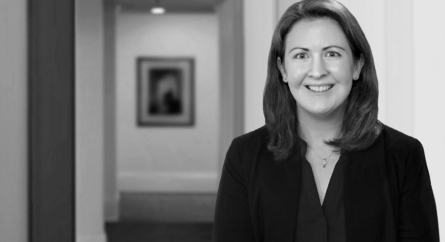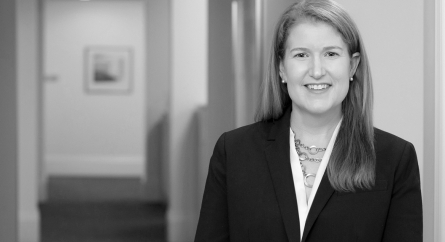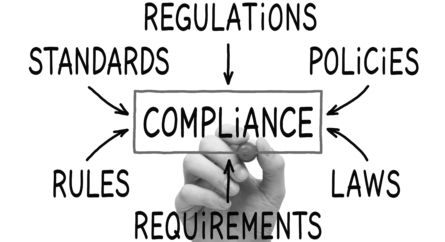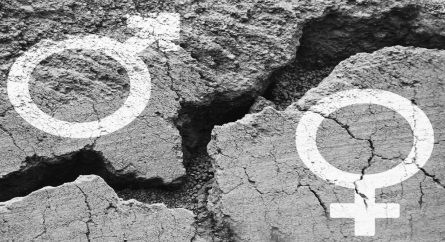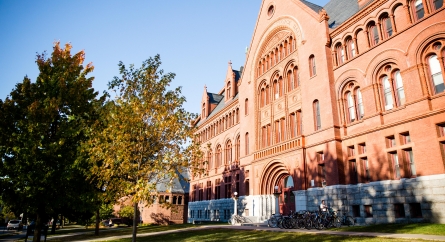Bypassing MCAD in Student Sexual Harassment Cases in Massachusetts
In a March 21, 2024, decision in the matter of Doe v. Cheffi, Suffolk Superior Court Justice Connolly ruled that students may bring sexual harassment claims against educational institutions in court, without first bringing the claim to the Massachusetts Commission Against Discrimination (MCAD). The decision may clarify the process surrounding sexual harassment claims under M.G.L. c. 151C and c. 214, § 1C brought by K-12 and higher education students against their schools.
Like the federal Title IX, Massachusetts law addresses sexual harassment in schools, but how students can bring a claim, and the rules surrounding such claims, are much less clear. Chapter 151C states that it is an unfair educational practice for an educational institution to “sexually harass students in any program or course of study in any educational institution[,]” and provides that students seeking admission to an educational institution or students enrolled in a vocational school must first exhaust their MCAD remedies before filing in Superior Court. But the question of how a student who is neither an applicant for admissions nor enrolled in a vocational school can file a sexual harassment claim against an educational institution has been an open one.
In Cheffi, a student plaintiff alleged that a teacher at Chelsea High School raped and sexually assaulted her while she was a student there, she then sought to file claims in court against Chelsea Public Schools and Boston University, which managed the Chelsea Public Schools at the time of the incident. The schools argued that the plaintiff had to petition the MCAD before filing in court, relying on 1986 amendments to Massachusetts anti-discrimination statutes (including Chapter 151C) that added Chapter 214, § 1C, which provides, in part “[a] person shall have the right to be free from sexual harassment, as defined in chapter one hundred and fifty-one B and one hundred and fifty-one C.” A 2002 amendment to Chapter 214, § 1C gave the Superior Court jurisdiction over claims under Chapter 214, § 1C that were actionable under Chapter 151B or Chapter 151C, but only if the claim was first brought to the MCAD.
The court noted that by its plain language, Chapter 214, § 1C appears to provide one exhaustion scheme through MCAD for applicants and students enrolled in vocational schools and another scheme of being able to file directly in Superior Court for other enrolled students.
Is this right? Justice Connolly looked to the statutory language, as well as recent federal and state court decisions, to support her holding that the enrolled student plaintiff was not required to first bring her sexual harassment claim against Chelsea Public School and Boston University to the MCAD:
- The Massachusetts Supreme Judicial Court had previously found that “General Laws c. 214, § 1C, thus extends to employees and students protection that is not otherwise available under G.L. c. 151B and c. 151C; it does not duplicate the relief provided by those statutes.” Lowery v. Klemm, 446 Mass. 572, 578 (2006)
- The plain language of Chapter 214, § 1C and the use of the term “also actionable” suggested that MCAD exhaustion is only required for claims brought by applicants for admission and students enrolled in vocational schools, as those are the only claims actionable under 151C.
- This is consistent with the federal District Court’s decision in Harbi v. MIT, where Justice Saylor determined that “chapter 151C provides that applicants and vocational students who allege sexual harassment must file a petition before the MCAD [and] All other students making such claims must bring their claims through chapter 214.” Harbi v. Massachusetts Inst. Of Tech., 2017 WL 3841483 (D. Mass 2017).
- Notably, Justice Connolly considered, but rejected the decision of Justice Barrett in Doe v. Shore Country Day Sch., in which Justice Barrett found that the statutory language required MCAD exhaustion for a student’s sexual harassment claims. Doe v. Shore Country Day Sch., 2019 Mass. Super. LEXIS 5244 (2019) (Barrett, J.).
As a result, Justice Connolly’s decision means that the plaintiff student’s Chapter 214, § 1C sexual harassment claim against the Chelsea Public Schools and Boston University can move forward in the Superior Court without first filing with MCAD. This sets up a potential opportunity for the Massachusetts Supreme Judicial court to weigh in on these inconsistent and conflicting interpretations of the statutory schemes and the determine the rights of enrolled students in Massachusetts (non-vocational) schools to file sexual harassment claims against those schools.
The changing landscape of non-discrimination law, on both the federal and state levels, can subject your institution to risk. It is important to review your institution’s policy and procedures when the law changes to ensure that you are ready to handle any claims that arise. For more information, or to request an assessment of your non-discrimination compliance, please reach out to Bowditch’s Higher Education group.
Categorized: Harassment
Tagged In: claims, MCAD, sexual harassment



